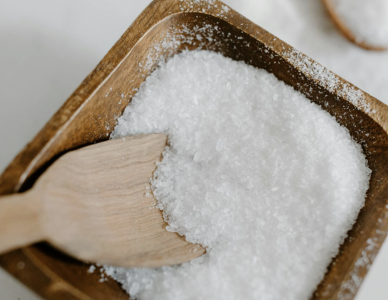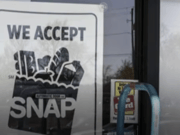FDA issues new recall alert—here’s what to check in your kitchen
By
Veronica E.
- Replies 0
If you’re someone who enjoys baking, sweetening your morning coffee, or keeping pantry staples on hand, you may want to take a moment to double-check what’s in your cupboards.
A well-known food brand has announced a recall that has caught the FDA’s attention.
The issue isn’t about freshness or flavor, but about the possibility of something unexpected showing up where it doesn’t belong.
While the affected product was distributed mainly in bulk, some may have made their way into home kitchens.
Knowing the details can help you stay safe and avoid any surprises.

What’s behind the recall
On August 12, Domino Foods Inc., based in Florida, issued a voluntary recall of specific lots of its pure cane granulated sugar packaged in 50-pound bags.
The concern is the potential presence of small foreign objects—such as bits of metal or plastic—that don’t belong in food.
The FDA classified the recall as Class II, which means the health risk is considered moderate.
While not likely to be life-threatening, the risk of temporary or reversible harm is real, especially for children, older adults, or anyone with digestive or swallowing issues.
Also read: Salmonella outbreak prompts expanded frozen vegetable recall
Products affected
The recall involves about 4,500 bags of Domino Pure Cane Granulated Sugar distributed in California and Utah.
Details include:
Although most households don’t buy sugar in 50-pound quantities, some bulk buyers or community groups might.
The bags are more commonly used by restaurants, bakeries, and food service providers.
Also read: This canned beverage is under recall—here’s why
Why it matters
Foreign objects in food are more than just unpleasant—they can cause injuries ranging from chipped teeth to internal damage requiring medical attention.
Dr. Mark Fischer of International SOS notes that even small pieces can cause harm if swallowed.
While no illnesses or injuries have been reported as of September 25, experts say it’s important to take recalls seriously and avoid using the affected product.
Also read: A major recall could affect thousands of popular trucks—here’s what drivers should know
What to do next
If you think you may have purchased the recalled sugar:
Also read: Sweet treat recall issued across 20 states—check your pantry
How food recalls work
The FDA issues hundreds of recalls each year for products ranging from fresh produce to packaged foods.
These actions are part of a broader system to keep the food supply safe.
Domino’s recall is considered Class II—meaning moderate risk—while Class I recalls involve serious risk of injury or death, and Class III recalls involve products unlikely to cause harm but still in violation of regulations.
Also read: Popular coffee brand issues recall over unexpected contamination risk
A reminder for kitchen safety
This recall is an opportunity to refresh everyday food safety habits:
Food recalls may not happen every day in your household, but when they do, staying informed can make all the difference.
A quick check of labels, lot numbers, or recall notices is often enough to prevent a bigger problem down the line.
By keeping up with updates from the FDA and sharing information with family, neighbors, or community groups, you can help ensure that everyone stays safe.
Read next:

Have you ever had to deal with a food recall? Do you keep track of expiration dates and lot numbers in your pantry? Share your thoughts and tips in the comments—your advice could help others stay safe.
A well-known food brand has announced a recall that has caught the FDA’s attention.
The issue isn’t about freshness or flavor, but about the possibility of something unexpected showing up where it doesn’t belong.
While the affected product was distributed mainly in bulk, some may have made their way into home kitchens.
Knowing the details can help you stay safe and avoid any surprises.

The FDA has issued a new recall alert, reminding consumers to stay cautious about what’s in their kitchens. Image Source: Pexels / Tara Winstead.
What’s behind the recall
On August 12, Domino Foods Inc., based in Florida, issued a voluntary recall of specific lots of its pure cane granulated sugar packaged in 50-pound bags.
The concern is the potential presence of small foreign objects—such as bits of metal or plastic—that don’t belong in food.
The FDA classified the recall as Class II, which means the health risk is considered moderate.
While not likely to be life-threatening, the risk of temporary or reversible harm is real, especially for children, older adults, or anyone with digestive or swallowing issues.
Also read: Salmonella outbreak prompts expanded frozen vegetable recall
Products affected
The recall involves about 4,500 bags of Domino Pure Cane Granulated Sugar distributed in California and Utah.
Details include:
- Product: Domino Pure Cane Granulated Sugar (50-pound bags)
- Lot Numbers: 75315A1, 75315B1, 75315C1, 75321A1, 75321B1, 75321C1
- UPC Code: 015800030515
Although most households don’t buy sugar in 50-pound quantities, some bulk buyers or community groups might.
The bags are more commonly used by restaurants, bakeries, and food service providers.
Also read: This canned beverage is under recall—here’s why
Why it matters
Foreign objects in food are more than just unpleasant—they can cause injuries ranging from chipped teeth to internal damage requiring medical attention.
Dr. Mark Fischer of International SOS notes that even small pieces can cause harm if swallowed.
While no illnesses or injuries have been reported as of September 25, experts say it’s important to take recalls seriously and avoid using the affected product.
Also read: A major recall could affect thousands of popular trucks—here’s what drivers should know
What to do next
If you think you may have purchased the recalled sugar:
- Check the lot numbers and UPC. Compare them with the list provided.
- Don’t use the product. Even if it looks normal, it may still pose a risk.
- Return or dispose. Follow recall instructions from Domino Foods or your place of purchase.
- Spread the word. Let others know, especially if you’re connected to local bakeries, churches, or organizations that may buy in bulk.
Also read: Sweet treat recall issued across 20 states—check your pantry
How food recalls work
The FDA issues hundreds of recalls each year for products ranging from fresh produce to packaged foods.
These actions are part of a broader system to keep the food supply safe.
Domino’s recall is considered Class II—meaning moderate risk—while Class I recalls involve serious risk of injury or death, and Class III recalls involve products unlikely to cause harm but still in violation of regulations.
Also read: Popular coffee brand issues recall over unexpected contamination risk
A reminder for kitchen safety
This recall is an opportunity to refresh everyday food safety habits:
- Check the FDA website regularly for current recalls.
- Inspect food items before use and trust your instincts if something seems off.
- Keep packaging and receipts for bulk items until they’re used up—it makes tracking recalls much easier.
Food recalls may not happen every day in your household, but when they do, staying informed can make all the difference.
A quick check of labels, lot numbers, or recall notices is often enough to prevent a bigger problem down the line.
By keeping up with updates from the FDA and sharing information with family, neighbors, or community groups, you can help ensure that everyone stays safe.
Read next:
- Popular Costco drink faces recall after bottle safety concerns—check if yours is affected
- Health alert: Snack recall affects over 40 states
- FDA issues highest-level recall over deadly contamination risk—check your pantry
Key Takeaways
- Domino Foods has voluntarily recalled 4,500 bags of pure cane granulated sugar due to possible contamination with foreign objects, classified as a Class II recall by the FDA.
- The recall affects 50-pound bags sold in California and Utah with specific lot numbers and a single UPC code.
- No illnesses have been reported, but consumers are urged not to use the product and to follow recall instructions.
- Experts warn that swallowing foreign objects like metal or plastic can cause injuries, making it important to return or safely dispose of the recalled sugar.
Have you ever had to deal with a food recall? Do you keep track of expiration dates and lot numbers in your pantry? Share your thoughts and tips in the comments—your advice could help others stay safe.






